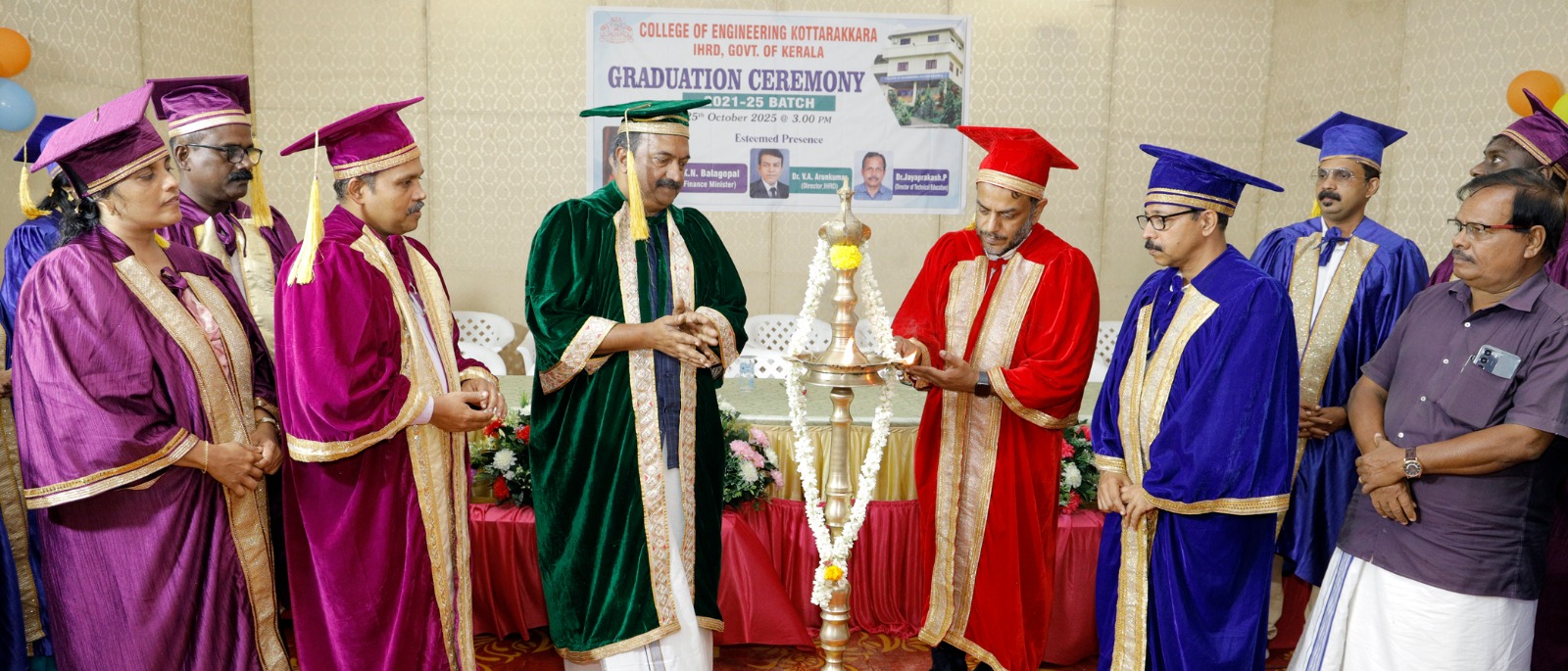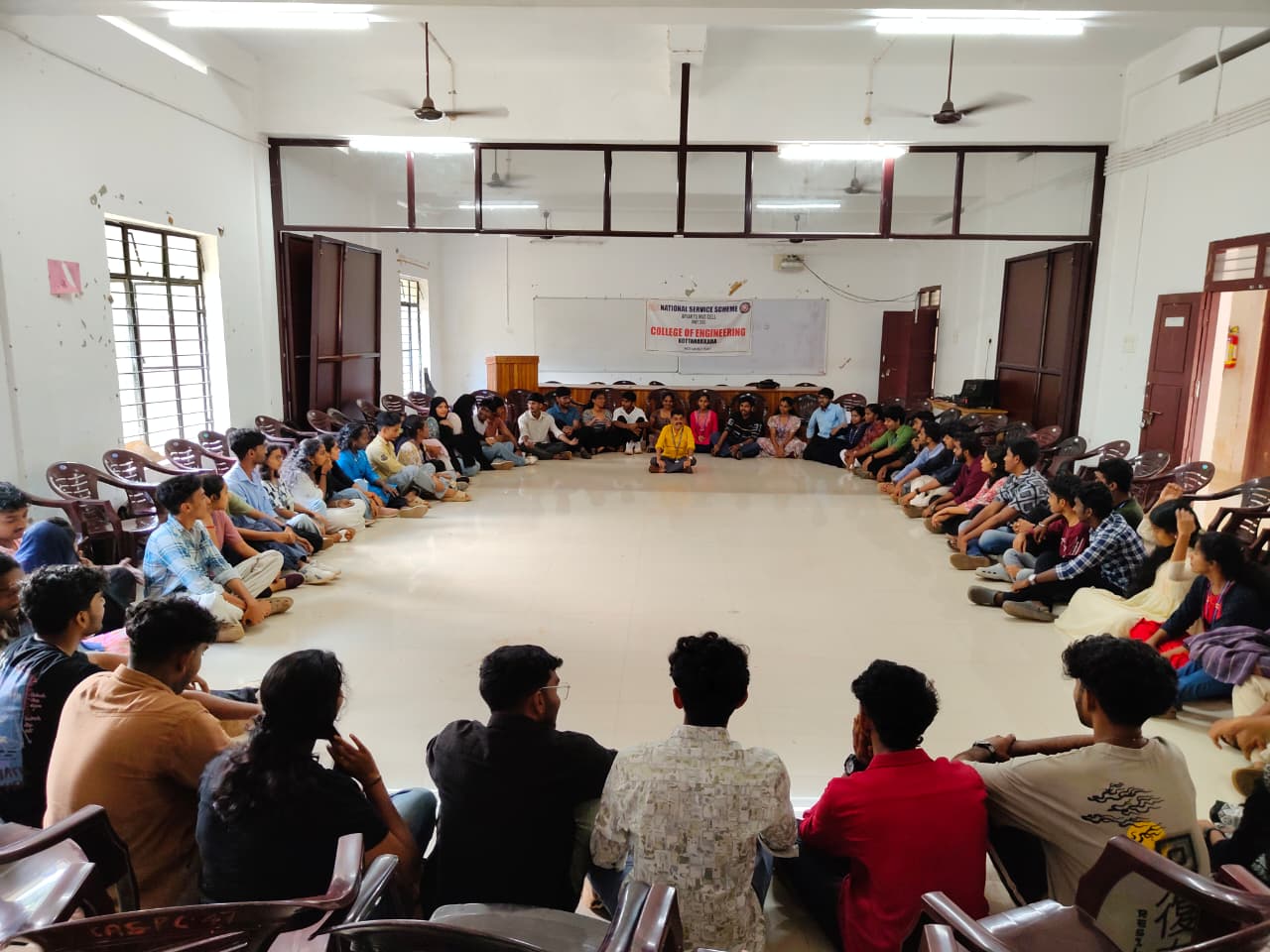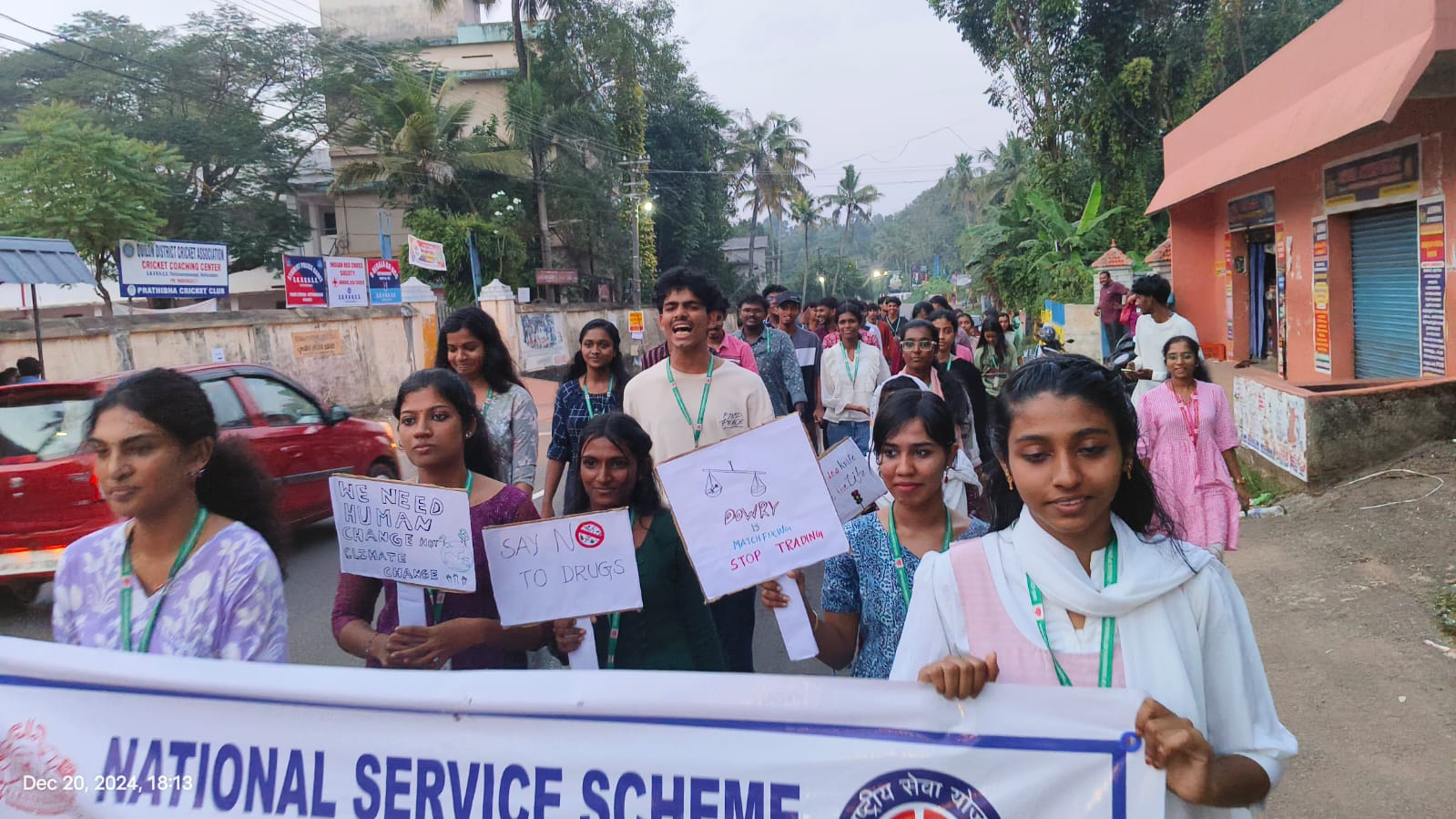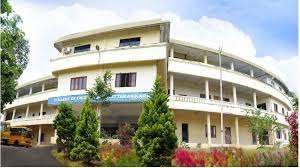
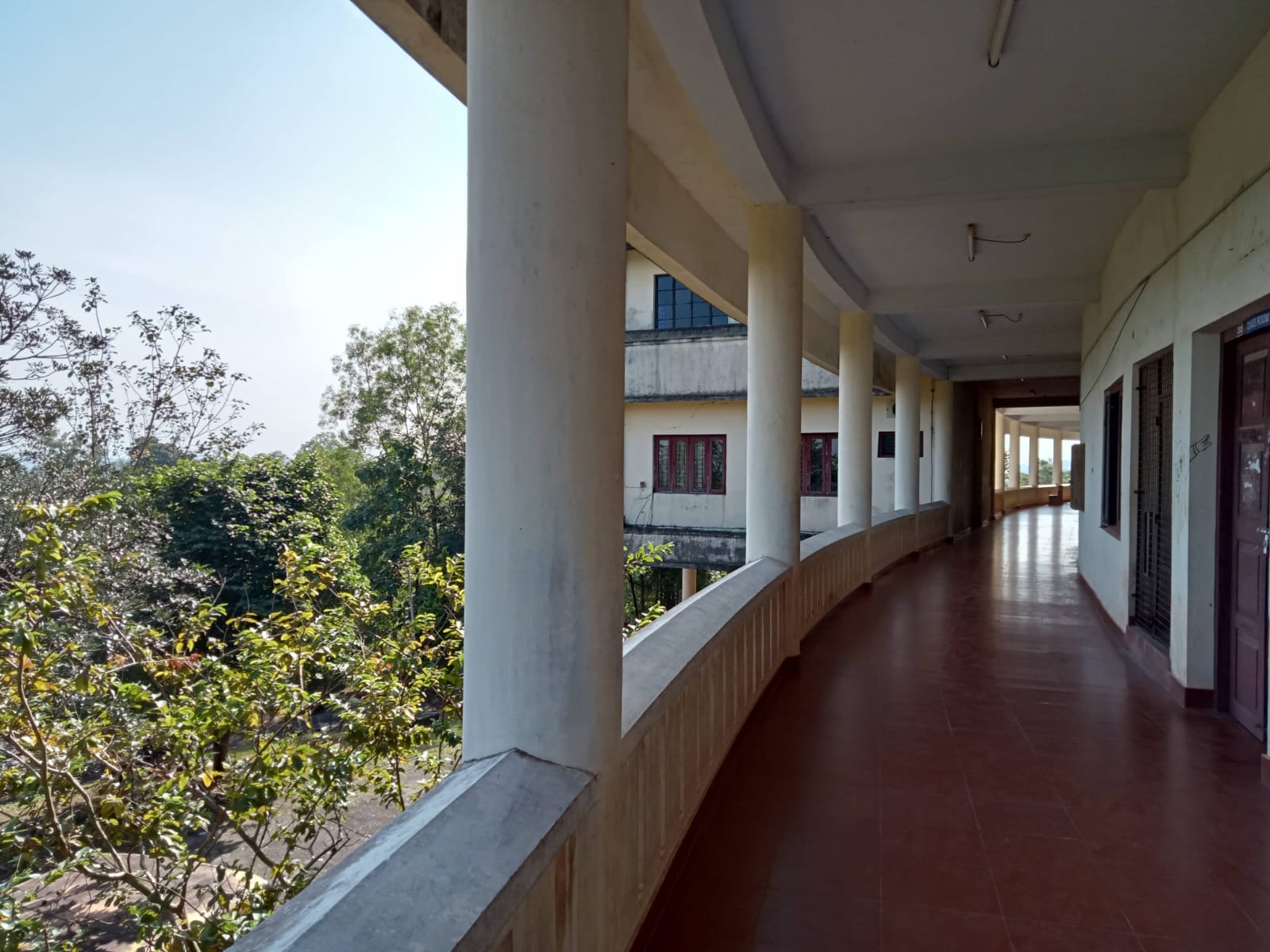

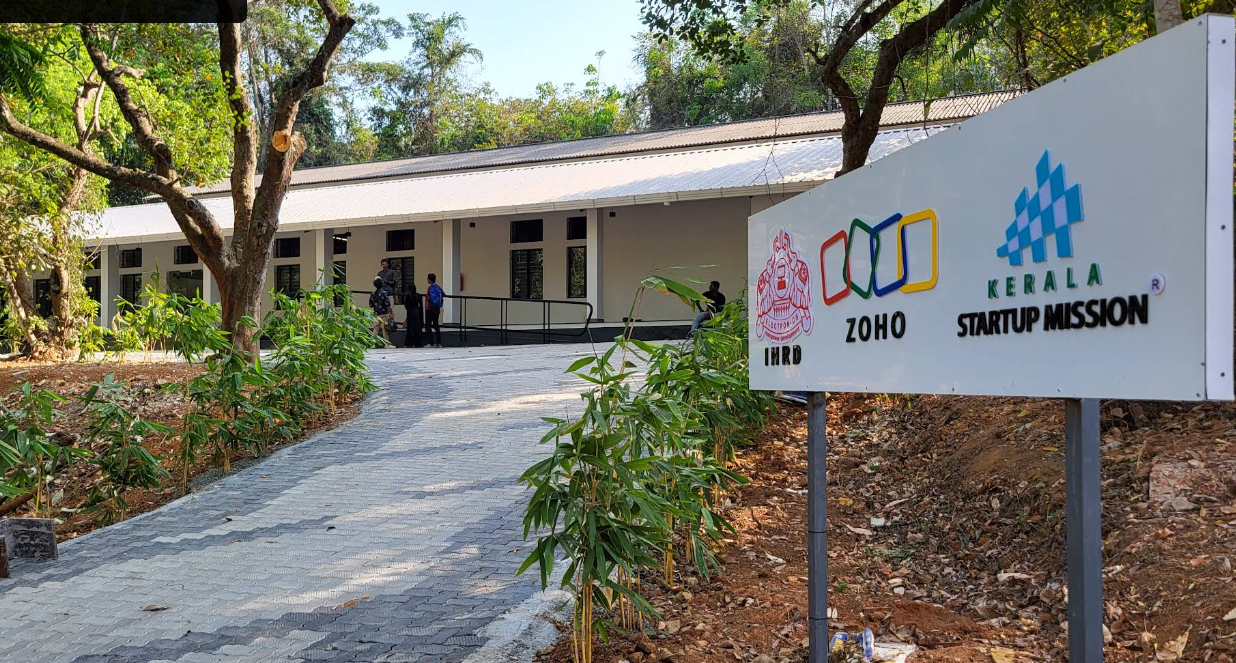
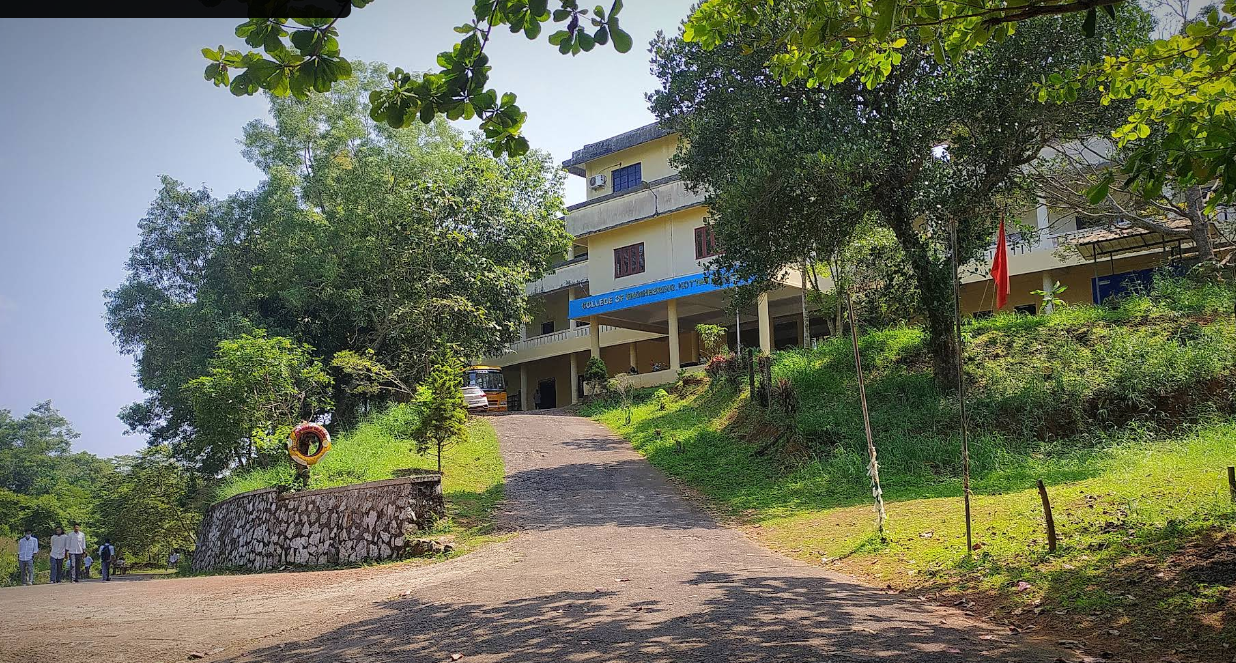
The College of Engineering Kottarakkara is a distinguished institution that has attained notable recognition in the field of technical education within a relatively short period. Established in 2004 under the auspices of the Institute of Human Resources Development (IHRD), the college has steadily strengthened its academic standing and contributed meaningfully to the technological advancement of the State. The institution is approved by the All India Council for Technical Education (AICTE) and is affiliated to APJ Abdul Kalam Technological University (KTU).
Located in Kottarakkara, in the Kollam district, the college is well-connected and benefits from convenient access to transportation, communication, and accommodation facilities. The campus is integrated with the National Knowledge Network (NKN), thereby facilitating collaborative research, knowledge exchange, innovation, and advanced distance education in specialized branches of engineering. The institute also maintains a digitally enabled learning environment with smart classrooms, and ICT-enabled teaching facilities.
The institution offers undergraduate programmes in key engineering disciplines and maintains a curriculum that aligns with contemporary industry standards and emerging technologies. Faculty members are highly qualified and actively engaged in teaching, research, consultancy, and continuous professional development.
In addition to academics, the college promotes a vibrant culture of co-curricular and extracurricular engagement. Various student clubs, technical forums, innovation cells, and professional society chapters such as IEEE, ISTE, and CSI encourage students to participate in technical events, competitions, seminars, and project exhibitions. The Innovation and Entrepreneurship Development Cell (IEDC) functions as a platform to nurture creativity, leadership, and entrepreneurial skills among students.
The college provides transportation services to Kollam and Kottarakkara through its dedicated fleet of buses, ensuring hassle-free travel for students and staff. Furthermore, separate hostel facilities for male and female students offer a secure and conducive residential environment, with amenities that support academic and personal growth. Additional facilities such canteen, sports infrastructure, career guidance and placement unit, and medical support services further enhance the overall learning ecosystem.
The institution remains committed to fostering holistic development, academic excellence, and ethical values among its students, with a vision to produce competent engineering professionals capable of contributing to societal and technological progress.
- B.Tech Computer Science and Engineering (120 Seats 4 Year)
- B.Tech Computer Science and Engineering Artificial Intelligence and Machine Learning (60 Seats 4 Year)
- Bachelor of Computer Application, KTU (60 Seats 4 Year)
- Bachelor of Business Administration, KTU (60 Seats 4 Year)
- To provide high-quality technical education that nurtures creativity, critical thinking, and professional competence.
- To develop ethical, skilled engineers capable of addressing contemporary global challenges.
- To promote research, innovation, and industry collaboration through advanced learning environments.
- To foster holistic student development, leadership, and social responsibility.
- Engineering Knowledge: Apply the fundamentals of mathematics, science, and engineering to solve complex engineering problems.
- Problem Analysis: Identify, formulate, and critically analyse real-world engineering challenges using sound principles and research-based knowledge.
- Design/Development of Solutions: Design systems, processes, or components that meet specified needs with consideration for public health, safety, cultural, societal, and environmental factors.
- Conduct Investigations of Complex Problems: Use research methodologies, experimentation, data analysis, and interpretation to arrive at valid conclusions.
- Modern Tool Usage: Apply modern engineering and IT tools, including prediction and modelling, to complex engineering tasks with an understanding of their limitations.
- Engineers and Society: Assess professional engineering practices in relation to societal, legal, and ethical responsibilities.
- Environment and Sustainability: Understand the impact of engineering solutions on society and the environment and commit to sustainable development.
- Ethics: Apply ethical principles and demonstrate professional responsibility in engineering practice.
- Individual and Team Work: Function effectively as an individual and as a member or leader in diverse teams and multidisciplinary environments.
- Communication: Communicate effectively with the engineering community and society at large through clear reports, presentations, documentation, and instructions.
- Project Management and Finance: Demonstrate knowledge of engineering and management principles and apply them to one’s work as a member or leader of a team.
- Life-long Learning: Recognize the need for life-long learning and acquire the ability to engage in continuous professional development.


